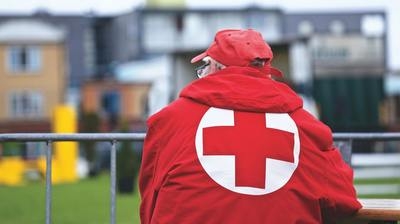900 Bestgate Road
Suite 400
Annapolis, MD 21401
410.280.1102

The Community Foundation of Anne Arundel County provides context and education for your philanthropic clients at all levels of giving and across the full range of charitable interests. The global COVID-19 pandemic in many ways has likely united your clients and other donors in a collective effort to support people in the communities they love. You’re no doubt seeing increased interest in this trend as you talk with clients and their families.
By many accounts, this new era of collective charitable giving in response to humanitarian crises was ushered in 10 years ago after a major earthquake occurred sixteen miles west of Port-au-Prince, the capital of Haiti. According to authorities, the 7.0 quake and its many aftershocks caused catastrophic damage, killing more than 100,000 people, and affecting more than 3 million others.
Only time will tell how the response to the current pandemic crisis will compare with the response to the 2010 Haiti earthquake. But it is worth reflecting on the experience of a decade ago for the important lessons that can help guide giving strategies to benefit people impacted by COVID-19.
The 2010 Haiti earthquake was the first-time social networks played a major role in philanthropy. Accelerated by Internet connections and social media, millions of people got the message that relief organizations needed help. Individual donors contributed an estimated $43 million to the assistance and reconstruction efforts using the text messaging feature on their cell phones, according to a study conducted at the Pew Research Center. Fueled by the speed of communication, within days of the earthquake, more than $200 million had been given to the relief effort. Within a year, total gifts and pledges surpassed $5 billion.
Since then, philanthropy has learned lessons that are helping maximize effective support during the COVID-19 pandemic.
Here are two helpful resources:
Grantbook offers valuable insights, such as the observation that Haiti’s earthquakes taught us that charities, funders, and governments need to work together. Plus, immediate needs for medical supplies and food were part of just a first wave of issues. As time went on after the disasters, deeper economic and health problems emerged that were also critically important for philanthropy and its partners to address. Grantbook also observes that money and volunteer efforts are important in the midst of a disaster and its immediate aftermath, but deploying the aid can be a huge challenge that donors need to keep in mind.
For additional information on the COVID-19 pandemic and philanthropy's response, visit the Center for Disaster Philanthropy.
The net-net?
Our communities need both immediate philanthropic support for people affected by the pandemic and long-term support for ongoing ramifications of COVID-19, including preparedness to blunt the effects of the next pandemic, and resources to address future humanitarian disasters. Encourage your clients to consider endowments, field-of-interest funds, designated funds, and other perpetual structures available through the Community Foundation of Anne Arundel Countyto ensure that the community we love is protected for generations to come.